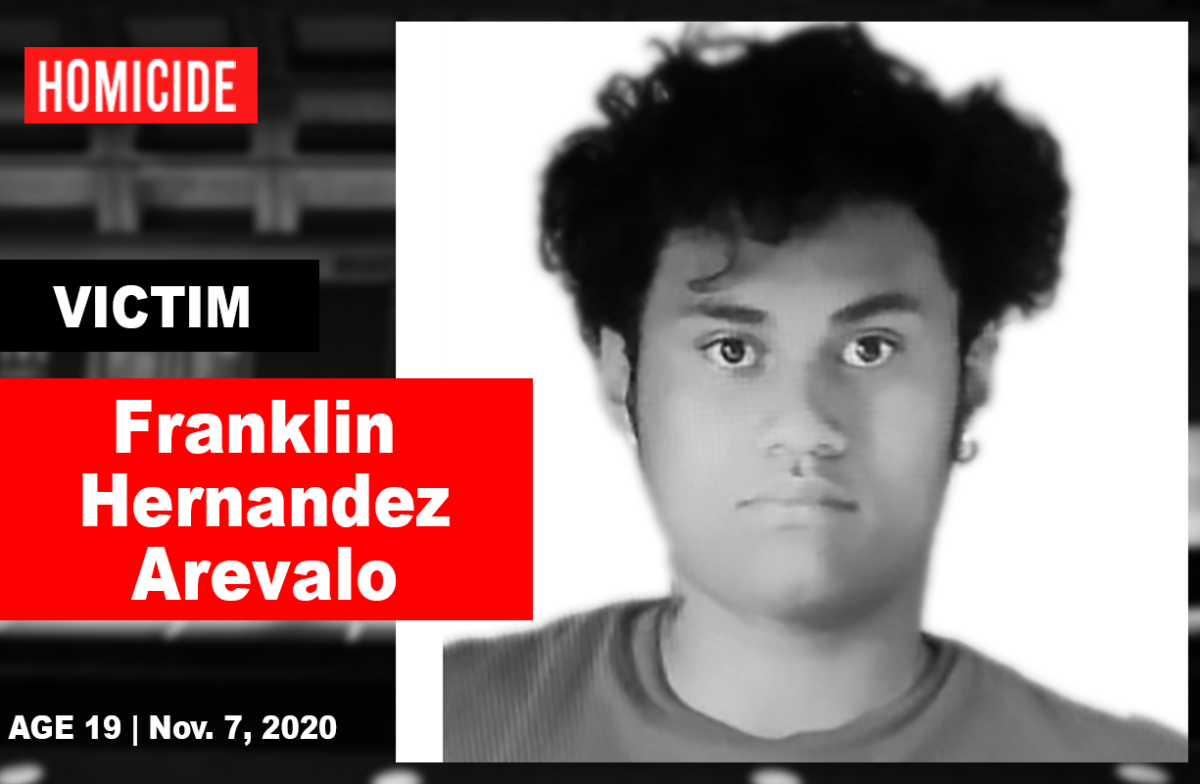
Thank you for reading D.C. Witness. Help us continue our mission into 2024.
Donate NowBy
- September 6, 2023
Daily Stories
|
Homicides
|
Shooting
|
Suspects
|
Victims
|
On September 6, DC Superior Court Judge Anthony Epstein sentenced Roberto Cayetano-Mejia to twelve years incarceration with credit for time served.
Cayetano-Mejia, 23, was originally charged with one count of second-degree while armed and one count of possession of a firearm during a crime of violence for the fatal shooting of 19-year-old Franklin Hernandez-Arevalo on Nov. 7, 2020 on the 3300 block of Water St. NW.
On April 27, Cayetano-Mejia agreed to a plea deal for one count of voluntary manslaughter while armed in exchange for a dismissing the possession charge.
Hernandez-Arevalo was located on scene by the Metropolitan Police Department (MPD) with a gunshot wound to the chest. He was pronounced dead at the scene.
Court documents reveal an escalating argument in which Cayetano-Mejia pulled a firearm and fired one close-range shot. Although a motive wasn’t determined, prosecutors suggest gang affiliations played a role in the altercation.
Hernandez-Arevalo’s mother, through an interpreter, made an emotional statement to the court about the pain she felt for the past two-and-a-half years, “What I wanted to say, it is not fair a child is not with me because a murderer with no heart…he did not only kill my child, he murdered me…a person like him should not be able to see the sun, like my child can’t see the sun.”
While asking for the maximum sentence, she yelled, “He is a monster, he is a monster.”
Overcome with emotion, she had to be helped out of the courtroom.
The prosecutors maintained Cayetano-Mejia should not be sentenced under the Youth Rehabilitation Act (YRA) based on his behavior after a previous conviction in Virginia and “no motivation whatsoever to rehabilitate” pending sentence for this case.
Defense counsel Rachel McCoy argued Cayetano-Mejia has been reflecting while incarcerated and realizes now “who he was is not who he wants to be.”
In a short statement, Cayetano-Mejia expressed remorse, “I want to apologize for the pain and suffering the family has experienced…If I could go back, I would tell my younger self to save a life that ended too early.”
Judge Epstein decided the sentence would not fall under the YRA as the seriousness of the case and the actions of Cayetano-Mejia make him less eligible.
After jail time, Cayetano-Mejia is required to serve five years supervised release, register as a gun offender, and complete educational or vocational classes and counseling services.
Follow this case